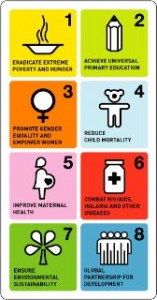Rebecca Birnbaum is graduate of the University of Michigan in Ann Arbor. She completed a double major in Political Science and Anthropology and a minor in Peace and Social Justice. Rebecca’s coursework included policy analysis, negotiation methods, and cultural perspective. As a SISGI Group Program and Research Intern, she focused on sustainable development, nonprofit management, and nonviolent conflict resolution.
Most commented posts
- Horn of Africa Crisis Worsens — 2 comments
- The Nonprofit Disconnect — 2 comments
- What the East Africa Drought Really Means — 2 comments
- Spotlight On charity: water — 1 comment
- The International Day of U.N. Peacekeepers — 1 comment












